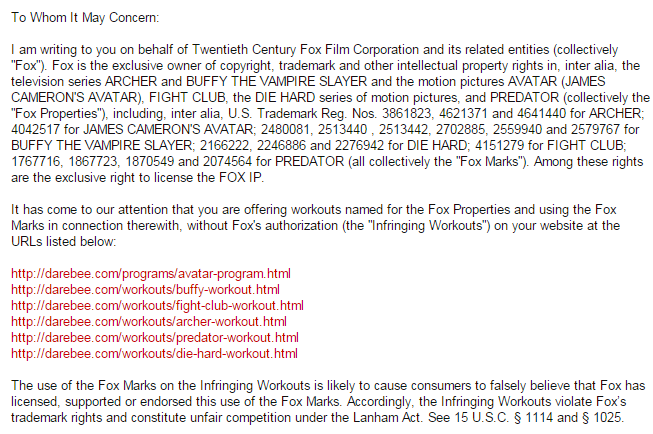 Just when some thought that Kim Dotcom might be running out of ammunition, the Megaupload founder has dropped another huge bombshell.
Just when some thought that Kim Dotcom might be running out of ammunition, the Megaupload founder has dropped another huge bombshell.
A recording of a discussion between the German and several Universal Music executives that took place in 2012 – just two days before the infamous raids – reveals a somewhat excited record label preparing to do business with Dotcom, in part at Google’s expense.
The 32 minute recording starts off mid conversation, with the one exec prompting Kim to talk a little bit more about Megakey, his system to monetize free music by replacing the ads that users normally see with ones supplied by Mega.
Megakey
As previously detailed, Kim explained that when Megakey users surf the Internet they see Mega ads instead of ads provided by other companies such as Google. In exchange, users are given credit to access free content. By Dotcom’s estimates it would be possible for Megakey to pay the labels 33 cents per track while enabling users to obtain 75 songs per year for free.
Soon the execs were asking questions, such as how Megakey could properly target users with appropriate ads. Kim explained that initially they would receive the ads at the bottom end of the market but once users began to experience high quality music provided by UMG, that would attract a better quality of ads worth up to twice as much.
Dotcom also offered to profile users to better understand them, with part of the Megakey deal being that users reveal information about themselves such as age, sex and location when they sign up. Dotcom said that the company could also cross reference user information made available on Facebook.
Start slowly and build
Due to the controversial nature of the Megakey ad replacement mechanism, both sides expressed a desire to start off slowly, initially by replacing just 10% of a user’s adverts.
“We need to be able – and this is also going to be one of the challenges – to be able to sell all of these impressions we will have. So to be able to fully sell out 10% of the ads that 100 million users would consume each day, that is a challenge and that would take time to build up, to have that kind of buying power from advertisers,” Dotcom said.
“We’re basically talking about a few billion dollars here and you need to, you know, create these relationships and so on.”
The caution over taking more than 10% was shared by the UMG execs.
“I can see what they’d say already,” said one. “It’ll be described as a parasite on other cyber services.”
Dotcom said that his legal team had already looked into it and concluded that each user is the king of their own computer and if he or she wants to replace ads, they are free to do so. Quickly, Kim suggested a target.
Target: Google
“If we were to enter a partnership with UMG, we would advise to only, for example at the start, to only replace ads being served from Google. Because Google, frankly, is benefiting the most of all Internet companies from piracy,” the Megaupload founder said.
“They host the world’s largest piracy index and if you want to find a song that belongs to UMG you just go to Google and you find a thousand links on a hundred different sites. These guys are probably not sending you the ad dollars that they are making, so I think that replacing ads from Google would be a fair thing. You are basically now charging a little tax for the benefits that they have with your content.
“I completely agree,” said one exec.
Kim later asked whether there would be any commercial agreements with other labels that would get in the way of a Megakey deal?
“We probably would need to agree a whitelist of where you could replace ads, just to avoid deliberately antagonizing,” said one.
“But Google will not be on that list!” laughed another.
“It’ll just be open season!” “Fire in the hold!” chimed in two others.
Don’t use the ‘T’ word
By now the conversation was starting to warm, but at least one of the UMG execs had taken issue with Kim’s use of the word ‘tax’.
“Isn’t that the worst analogy you could make? Isn’t that the worst possible way of phrasing it?” he said.
Dotcom disagreed.
“You are trying to get legislation in place and get governments to do that for you but they won’t do that. They want to be reelected. They will not have a culture tax, ok? So we can make that happen for you, the culture tax,” Dotcom said.
The label exec preferred to frame it differently
“I’d argue that what you are trying to do is not imposing a tax on anybody, it’s that you are giving users a chance to control their own destiny when it comes to how ads are served and to participate in the revenue generated from it. Because anything that has the word tax in it is immediately ‘Oh God!”
“Let me add that we would never say that in any public forum,” Dotcom responded. “So I use this term in this closed round here but at the end of the day, that’s what it is.”
This thing has potential….
Soon the UMG execs were coming up with the ideas.
“If Universal decided to work with you guys, rather than replacing ads everywhere we could replace a much higher percentage when it came to any page connected to a Universal artist,” said one. “If we choose to work with you guys, Megakey replaces [the ads], and that then makes it less parasitic. There’s a bunch of spins we could take, we could replace them with Vevo ads.”
“I like you guys, why didn’t we talk years ago?” asked Dotcom.
“We are dealing with everyone who just hates us and wants to kill us but I think we really have a solution that can solve the problem of the content creators. We are very proud of it and would love to work with you guys as you seem to be really getting it and i’m so happy that we have had this meeting now.”
How soon can we start?
Complaining about the music business being run by lawyers after the Napster era, one UMG exec told Dotcom that things are changing.
“So, if we were to do a deal with [Megakey], how quickly could you [move]? This technology is live and in place now?”
“Yes, that’s correct,” Kim confirmed.
“So all we have to do is work out a deal, plug you guys into our legitimate feed of repertoire, and we could go live this side of the summer,” an exec responded.
“We need to have a commercial conversation about the deal making process and I’ll keep the lawyers at bay as long as I possibly can. When we come to paper the deal I’ll have to bring in a lawyer but I’ve got a lawyer I can trust who can do this.”
Dotcom and the UMG guys agreed to meet up in March 2012, but first there was a thorny issue to raise.
The Mega Song Controversy
“Have you guys heard about this Mega Song video that happened between UMG and us?” Dotcom asked.
UMG had previously angered Dotcom by wrongfully taking down his wildly successful video from YouTube and legal action was still pending.
“So the thing is because of that takedown we had to take some legal action and we’re basically now in court with UMG and if you guys feel like this is something interesting to talk about I think we should diffuse that a little bit,” Dotcom told the meeting.
“I agree,” came the response. “I think that in the wider conversation at some point it would be very helpful if that just disappeared.”
Interestingly, the execs then provided a surprise reason for the problems, partially laying the blame on Google.
Google had a point to prove on SOPA?
“The Google [YouTube] filters which are normally very inefficient got miraculously efficient. We could not understand why. We’d withdrawn the claim yet the filter was taking down stuff that in a million years it wouldn’t normally catch. So we were sat in the background going ‘What the fuck is going on here?'” one exec said.
“We did something that we thought was in good faith, we then took back the takedown and then the filters went mad in a way that if they’d done so on a normal day, we’d be happy.”
Then the conversation got a little bit dark, to say the least.
“Between you and I, please never repeat any of this conversation – because I’d be sacked – but there was a lot of weird shit going on in that very brief period where we had to wonder whether the people running the [YouTube] filters were running the business to their ends,” one exec explained.
“It was a perfect political football,” said another. “And they kicked it very hard.”
“Because of the SOPA thing, we got fucked. Which is fine.”
Moving on to the size of the market and Universal’s dominant share, one exec told Dotcom what he was waiting to hear.
“I will happily do a deal with you guys.”
‘Notorious Market’ lists are bad for business
But of course, an elephant remained in the room. Megaupload was out of favor with not only the record labels but also the MPAA and United States Trade Representative. Dotcom decided to point out what everyone in the meeting almost certainly had in the back of their minds.
“We have gotten a lot of fire from RIAA, MPAA, everyone in the content industry, for you know, Megaupload,” Dotcom said.
“We don’t have a rewards program, we are one of the cleanest guys. I mean you guys, UMG, RIAA, everyone has direct access to our servers. We remove content swiftly, we try our best to be the best player in our industry but we’re getting all the heat because of our size.
“What would also be nice is if we could try and defuse that whole situation and if you can make an effort to help us with that because, you know, putting us on all sorts of nasty lists and how bad we are and all of that, that doesn’t help either.”
The suggestion was well received.
Allow us to improve your standing, Mr Dotcom
“Yeah, I agree. In exchange for the litigation disappearing there are certain people I can have conversations with where you will be moved onto a different list as opposed to a bad list,” an exec told Dotcom
“We want to be on the friends list!” he responded.
“Yeah, well you get on to the friends list once we’ve signed a deal. And then the rules of engagement change completely. In the short-term I can downgrade your status from ‘evil’ to ‘bad’ and as the process goes on it will be from ‘bad’ to ‘good’ to ‘exceptional partner’.”
Never one to miss a point of negotiation, Dotcom persuaded the execs to change his designation from “evil to bad” to “evil to neutral” and they agreed, noting that companies can be easily removed from the notorious markets list if they so desire.
But sadly for all involved, none of that came to pass.
“They wanted to reduce my status from ‘evil to neutral’ if I partnered with them,” Dotcom told TorrentFreak this morning.
“This call was two days before the raid. They were excited about Megabox and especially my Megakey innovation. It clearly shows that I was trying to help artists to create more income from the Internet.”
And then the raid happened, and the rest is history.
Source: TorrentFreak, for the latest info on copyright, file-sharing, torrent sites and ANONYMOUS VPN services.

 Earlier this year the U.S. Government won its civil forfeiture case against Megaupload and Kim Dotcom.
Earlier this year the U.S. Government won its civil forfeiture case against Megaupload and Kim Dotcom.  Just when some thought that Kim Dotcom might be running out of ammunition, the Megaupload founder has dropped another huge bombshell.
Just when some thought that Kim Dotcom might be running out of ammunition, the Megaupload founder has dropped another huge bombshell. Last month the MPAA
Last month the MPAA  There are millions of Internet users grabbing content from file-sharing networks each and every day. These mainly BitTorrent bandits cost copyright holders millions in lost revenues but with a little trickery it’s possible to make them pay.
There are millions of Internet users grabbing content from file-sharing networks each and every day. These mainly BitTorrent bandits cost copyright holders millions in lost revenues but with a little trickery it’s possible to make them pay.